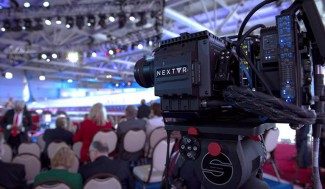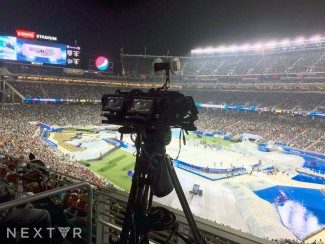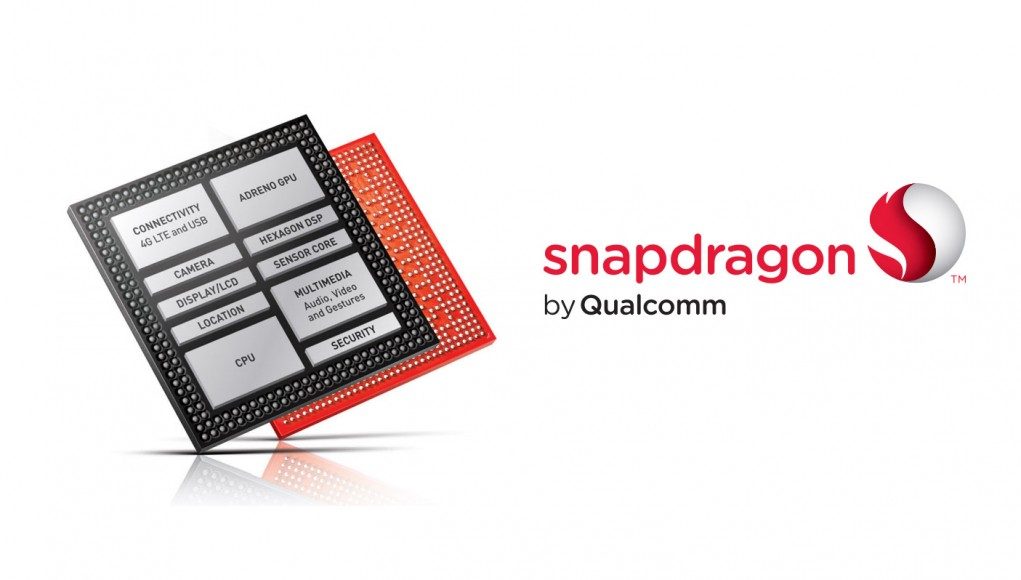Qualcomm’s latest Snapdragon 820 chipset is set to power flagship phones throughout 2016 and the company is touting the ‘system-on-a-chip’ as being optimized for virtual reality. The well recognized VR broadcast company, NextVR, has high praise for what the chipset is able to achieve, calling it competitive even against the bar-setting Gear VR.
While Google Cardboard and other ‘pure’ Android-based VR is an inexpensive way to get a very basic taste of VR, limitations of hardware and software not designed expressly for virtual reality has kept the experience sub-par. Samsung’s Gear VR has managed to set the bar by making special software modifications that work in tandem with a set of specific phones and a high performance external headtracking sensor that’s built into the headset, collectively affording a much better VR experience than unassisted Android phones have been able to provide.
But the promise of ‘VR-ready’ phones, which would be built with hardware and software designed with VR in mind, is exciting as it could mean that the low-end mobile VR experience gets much better.

Qualcomm claims that their Snapdragon 820 chipset—a ‘system-on-a-chip’ (SOC) which forms the basis of powerful smartphones—has indeed been specially optimized for virtual reality. NextVR, a significant player in the virtual reality space, worked with Qualcomm to create a VR livestreaming app optimized for the chipset. The company has serious praise for the 820’s VR capabilities.
“This new technology levels the playing field for mobile VR by putting flagship phones featuring the Snapdragon 820 ahead of the best currently available mobile VR devices,” said Dave Cole, co-founder of NextVR, in a press release issued this week. “The Snapdragon 820 processor is optimized for virtual reality and the Android phones with this chipset provide no-compromise, state-of-the-art VR.”
While we’ve heard this kind of talk from mobile phone makers before, hearing it from a well established VR company makes our ears perk up. With NextVR having built and deployed its own app on Gear VR, the company is intimately familiar where the bar is set for mobile VR.
“…the 820 has many of the advantages [that] the external IMU [like Gear VR] provides on older SOCs,” Cole tells Road to VR. “The Qualcomm Compute DSP and more specifically HVX acceleration enables ultrafast IMU sampling, low motion-to-photon latency and display driving optimization, all with the low power advantages of the onboard DSPs.”

Cole says that the Snapdragon 820-optimized NextVR app, which will livestream the company’s VR footage, will launch soon for devices based on the chipset and for “similarly advantaged SOCs.”
Promoting the chipset in late 2015, Qualcomm published a blog post addressing the chiptset’s VR-focused capabilities, and briefly touched on latency, one of the most crucial factors in a quality VR experience.
“The sensor processing used on the Qualcomm Hexagon 680 DSP with Hexagon Vector Extensions (HVX) and the visual rendering of the Adreno 530 GPU must work in concert, nearly instantaneously, so you genuinely feel as though you are looking around within a 3D world.” The company didn’t, however, offer up any specific latency measurements.
Oculus worked with Samsung on Gear VR to make optimizations across the board from hardware to software to achieve sub-20ms latency, consistent 60Hz framerate, and low-persistence. If theses defining features of a quality mobile VR experience can be achieved from a self contained phone built on Snapdragon 820, it could seriously shake up the mobile VR space. We’ll be checking out the first VR experiences based on the chipset this week at CES 2016.







